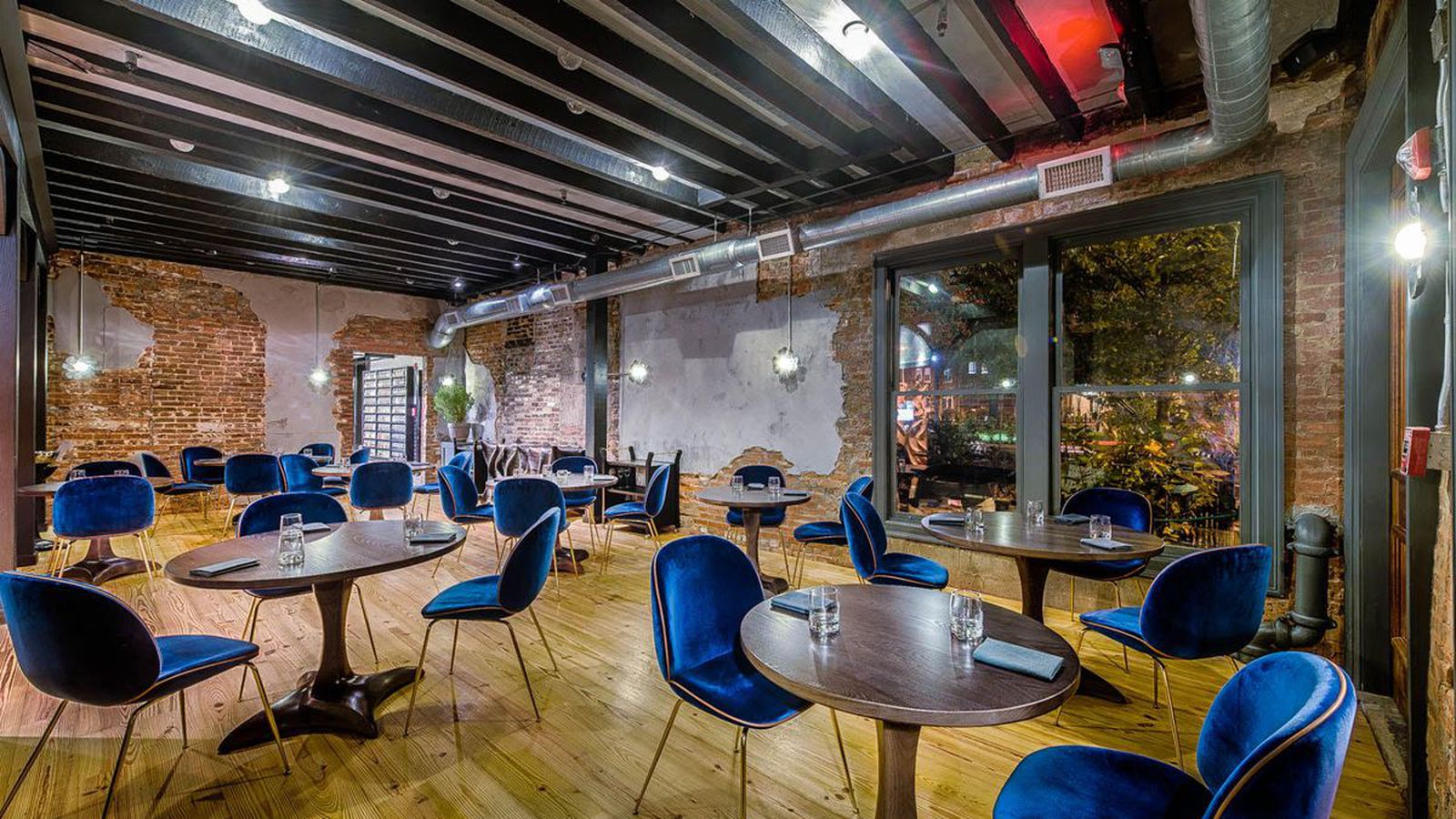Washington, DC., New York, Chicago, San Fran, LA, and Dallas All host great restaurants – of which a half dozen or so compete on the World Stage of greats.You want to open a restaurant and claim it belongs you better be on the very, very, very top of your game. Legendary locations for exquisite cuisine include The French Laundry, Per Se, Alinea, or Le Bernadin are world famous. The top 5, 10, or 50 list is hotly contested and changes from year to year. Per person seatings generally run from $80 to $300 before the wine tab.
In the Washington, DC area that list include perennial favorite, The Inn at Little Washington, as well as relative newcomers Minibar, Rasika, Komi, Fiola, and French traditional stalwart L’Auberge Chez Francois.
So when an upstart opens a new place with a price tag of $1,000 a seating, at 4 times the price of 2 of the highest Michelin rated restaurants in the US, you better be able to produce something so spectacular, people faint at first tasting.
Alas… This foolish brother couldn’t “walk the walk”.
Just from a single guy standpoint, if I’m picking up a $2,000 tab – everything from the decor, ambiance, food, service, wine better be so good – my date hands me the room key to the Presidential Suite she paid for at the hotel…With the bottle of champagne!
I’m not paying 4 times the going rate for some of the very best restaurants in the world…For a place whose decor looks like “Early Howard Johnson’s”

Shaw Bijou Dining Room @ $2,000 for 2

The competition — The Inn at Little Washington Veranda Dining Room @ $300-$500 for 2

Fail! Chef Kwame Onwuachi lost his debut restaurant after less than three months of business.
The Shaw Bijou closed today, and the owner says the blame for the restaurant’s two-and-a-half-month existence is shared among all the principals.
Kelly Gorsuch, the principal owner of Shaw Bijou, says he saw himself as a silent investor, providing the capital for first-timers chef Kwame Onwuachi and general manager Greg Vakiner to build and run the high-concept restaurant they had been planning for years. But in retrospect, Gorsuch says he should have pushed the duo more from the start.
He says that the restaurant’s pricey tasting-menu dinner wasn’t filling seats or covering costs. So on Sunday, Gorsuch called Onwuachi and Vakiner into a meeting and told them he was closing Shaw Bijou, effective immediately. Gorsuch and the other principal investor Glenn Paik could no longer afford to keep the place running.
Neither Onwuachi nor Vakiner could be reached for comment.
“[The restaurant] bled too much, at too much of a clip, to be able to salvage it,” says Gorsuch, the president of Gorsuch Holdings, a company that operates upscale salons and other luxury brands. “It just cost a lot of money. It was a very expensive business. I’ve never quite seen that in business at all. That was new for me. The numbers were staggering.”
The closing of Shaw Bijou, first reported by Washingtonian, brings an abrupt end to a restaurant that endured wild mood swings before it served a single meal. Even before appearing on “Top Chef,” where he finished sixth out of 17 contestants last year, Onwuachi was a hot commodity. He not only had a compelling back story, but he also had an impressive run with Dinner Lab, a series of pop-up dinners in which the chef consistently impressed diners. Onwuachi’s appearances on “Top Chef” only contributed to the buzz around the young cook, even though he had never run his own restaurant or managed a kitchen.
The hype took a turn in August when Onwuachi and his team announced the price tag of their 13-course tasting menu, which would take diners on a journey through a converted townhouse. It wasn’t long before Washingtonians realized that dinner for two at Shaw Bijou could top out at $1,000, immediately making it one of the most expensive restaurants in the city. Diners couldn’t understand how someone with such a thin resume could compete with the likes of José Andrés, Eric Ziebold and Aaron Silverman.
When Shaw Bijou opened on Nov. 1, the early reviews were mixed. In his First Bite review, The Post’s Tom Sietsema enjoyed several of his savory courses but found the desserts fell flat. More dispiriting, the critic realized that after dropping $500 per person on the meal, he was still hungry. Washingtonian gave the place two stars in a review that couldn’t make sense of the story that Onwuachi was trying to weave.
Two months into its existence, Shaw Bijou slashed its prices and its offerings: Onwuachi rolled out a seven-course, $95 tasting menu on Jan. 3. The chef also offered up a little humble pie. “Humility creeps up on you when least expected,” Onwuachi noted in a letter. “The opening of this restaurant has taught us just that.”
But Gorsuch says it was too little, too late.
“I think all business is difficult. You have to be able to move and change and adapt quickly, especially when you’re starting out,” Gorsuch says. “It wasn’t happening. It wasn’t where it needed to be.”
The owner says he had been trying for weeks to convince Onwuachi and Vakiner to change the concept, but he says he couldn’t convince them.
“I think the biggest problem here, from the get, was that we were not listening to the guests,” Gorsuch says. “We spent two years working on this thing . . . I don’t care what the industry is, you put your people first and you care about the guests and you care about the details. . . I mean, numbers can be tweaked. You can cut things, but you have to have those elements.”
Gorsuch says he had spent most of Sunday trying to find jobs for the servers, cooks and bartenders at Shaw Bijou. The owner wasn’t as concerned about the chef and general manager. The longtime friends, who first met while attending the Culinary Institute of America, will probably find a new home soon, Gorsuch says.
“They’ll be fine,” the owner says. Onwuachi “had tons of offers before us.”
Gorsuch says this experience has shaken him. He’s never closed a business before. “This is probably the roughest week I’ve ever had,” he says.
But more than that, Gorsuch is upset by the lost opportunity. He says he believed in the team behind Shaw Bijou. He thought they could have pulled off the concept with proper oversight.
“The game plan was always to be super innovative,” Gorsuch says. “For all the things we did wrong, the talent that was in that building was special.”





















 While Donald Trump may be famous for his litany of ridiculous boasts and exaggerations, his latest claim to be a top winery owner—made
While Donald Trump may be famous for his litany of ridiculous boasts and exaggerations, his latest claim to be a top winery owner—made  Terri and husband, Gene Upshaw
Terri and husband, Gene Upshaw





